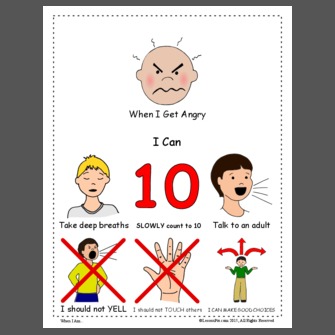
Why Am I So Angry When I Wake Up?
Waking up feeling angry is a common experience that can leave you feeling drained and irritable. The causes of morning anger are varied, but they typically fall into two categories: physical and emotional.
Physical Causes of Morning Anger
- Lack of sleep: When you don’t get enough sleep, your body produces more cortisol and adrenaline. These hormones can make you feel restless, anxious, and irritable.
- Sleep apnea: This condition causes you to stop breathing repeatedly during the night, which can lead to sleep deprivation and morning anger.
- Hypoglycemia: Low blood sugar levels can also cause irritability and anger.
Emotional Causes of Morning Anger
- Stress: When you’re stressed, your body produces hormones like cortisol and adrenaline, which can make you feel wired and on edge.
- Anxiety: Anxiety can also lead to morning anger, as it can make you feel restless and irritable.
- Depression: Depression can cause a variety of symptoms, including irritability, anger, and difficulty sleeping.
Understanding the Causes of Morning Anger
If you’re waking up feeling angry on a regular basis, it’s important to try to identify the cause. Once you know the cause, you can start taking steps to address it.
-
If you think your morning anger is due to a physical cause, talk to your doctor. They can help you rule out any underlying medical conditions that may be contributing to your symptoms.
-
If you think your morning anger is due to an emotional cause, there are a number of things you can do to help manage your stress and anxiety. These include:
- Getting regular exercise: Exercise is a great way to reduce stress and improve your mood.
- Eating a healthy diet: Eating a healthy diet can help you maintain a healthy weight and improve your overall health, which can both reduce stress and improve your mood.
- Getting enough sleep: Most adults need around 7-8 hours of sleep per night. Getting enough sleep can help you feel rested and refreshed, which can help reduce your stress and anger levels.
- Practicing relaxation techniques: Relaxation techniques, such as yoga, meditation, and deep breathing, can help you manage stress and improve your mood.
- Talking to a therapist: If you’re struggling to manage your stress and anxiety on your own, talking to a therapist can help. A therapist can help you identify the root of your anger and develop strategies for coping with it.
When to See a Doctor
If your morning anger is severe or you’ve tried to manage it on your own without success, it’s important to see a doctor. Your doctor can help you rule out any underlying medical conditions that may be contributing to your symptoms and recommend treatment options.
Are You Interested in the Topic?
If you are interested in the topic, please let us know in the comments below. We would love to hear your thoughts and experiences.

Image: pinterest.com

Image: lessonpix.com
Avatar: The Last Airbender: Shocking Facts About Katara Dec 1, 2022Focus on taking slow, deep, controlled breaths. Rather than taking shallow breaths that only fill your chest, try taking in deeper breaths that expand your belly as well. The great thing about deep breathing is that it is something that you can use quickly in the moment whenever anger threatens to overwhelm you.